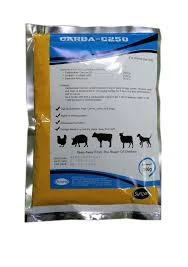- Afrikaans
- Albanian
- Amharic
- Arabic
- Armenian
- Azerbaijani
- Basque
- Belarusian
- Bengali
- Bosnian
- Bulgarian
- Catalan
- Cebuano
- Corsican
- Croatian
- Czech
- Danish
- Dutch
- English
- Esperanto
- Estonian
- Finnish
- French
- Frisian
- Galician
- Georgian
- German
- Greek
- Gujarati
- Haitian Creole
- hausa
- hawaiian
- Hebrew
- Hindi
- Miao
- Hungarian
- Icelandic
- igbo
- Indonesian
- irish
- Italian
- Japanese
- Javanese
- Kannada
- kazakh
- Khmer
- Rwandese
- Korean
- Kurdish
- Kyrgyz
- Lao
- Latin
- Latvian
- Lithuanian
- Luxembourgish
- Macedonian
- Malgashi
- Malay
- Malayalam
- Maltese
- Maori
- Marathi
- Mongolian
- Myanmar
- Nepali
- Norwegian
- Norwegian
- Occitan
- Pashto
- Persian
- Polish
- Portuguese
- Punjabi
- Romanian
- Russian
- Samoan
- Scottish Gaelic
- Serbian
- Sesotho
- Shona
- Sindhi
- Sinhala
- Slovak
- Slovenian
- Somali
- Spanish
- Sundanese
- Swahili
- Swedish
- Tagalog
- Tajik
- Tamil
- Tatar
- Telugu
- Thai
- Turkish
- Turkmen
- Ukrainian
- Urdu
- Uighur
- Uzbek
- Vietnamese
- Welsh
- Bantu
- Yiddish
- Yoruba
- Zulu
10 月 . 13, 2024 13:53 Back to list
Tylosin Injection for Goats Benefits and Usage Guidelines in Livestock Management
Tylosin Injection for Goats An Overview
Tylosin is a macrolide antibiotic that is primarily used in veterinary medicine, particularly in the treatment of various bacterial infections in livestock, including goats. Its pharmacological profile and effectiveness in treating respiratory diseases, mastitis, and other infections make it a valuable tool for goat farmers looking to maintain animal health and productivity.
Mechanism of Action
Tylosin works by inhibiting bacterial protein synthesis, which halts the growth and reproduction of susceptible bacteria. This mechanism makes it effective against a variety of gram-positive and some gram-negative bacteria, as well as certain mycoplasmas, which are often responsible for chronic infections in goats. By disrupting the bacterial life cycle, tylosin helps the animal's immune system to mount a more effective response.
Indications for Use
Tylosin injection is predominantly indicated for the treatment of conditions such as respiratory diseases caused by Mycoplasma species, enteritis, and various soft tissue infections. Additionally, it can be used to manage uterine infections in does and treat mastitis in lactating goats. The timely administration of tylosin can significantly reduce morbidity and mortality rates among affected populations, leading to improved overall herd health.
Dosage and Administration
The appropriate dosage of tylosin varies based on the severity of the infection and the specific condition being treated. Typically, the dosage is tailored to the weight of the animal and is administered either subcutaneously or intramuscularly. It is crucial for goat farmers to consult with a veterinarian to determine the correct dosage and treatment duration, as improper use may lead to antibiotic resistance and other health issues.
tylosin injection for goat

Benefits of Tylosin
One of the major advantages of using tylosin is its relatively short withdrawal time compared to other antibiotics, which is particularly important for meat and milk production. This means that goats treated with tylosin can typically return to production within a shorter timeframe, thus minimizing economic loss for farmers. Additionally, tylosin is often well-tolerated in goats, with few side effects reported when used according to veterinary guidelines.
Considerations and Precautions
While tylosin is effective, it is essential to use it judiciously to combat the increasing concern over antibiotic resistance. Farmers should administer antibiotics only when confirmed or strongly suspected infections are present, and should always consult with a veterinarian for proper diagnosis and treatment plans. Monitoring the goats' health post-treatment is also critical to ensure that the infection has cleared and to watch for any adverse reactions.
In addition, farmers should be aware of regional regulations regarding the use of antibiotics in livestock, as some areas have implemented strict guidelines to limit antibiotic use in food-producing animals. This is part of broader efforts to promote sustainable farming practices and maintain food safety.
Conclusion
In summary, tylosin injection is an effective treatment option for various bacterial infections in goats, offering benefits in terms of animal health and economic productivity. By understanding the proper use of this antibiotic, goat farmers can enhance their herd's health, reduce the risk of disease transmission, and maintain high standards of animal welfare. As with all veterinary treatments, responsible use guided by professional veterinary advice is essential to ensure the best outcomes for both the goats and the farming operation.
-
The Power of Radix Isatidis Extract for Your Health and Wellness
NewsOct.29,2024
-
Neomycin Sulfate Soluble Powder: A Versatile Solution for Pet Health
NewsOct.29,2024
-
Lincomycin Hydrochloride Soluble Powder – The Essential Solution
NewsOct.29,2024
-
Garamycin Gentamicin Sulfate for Effective Infection Control
NewsOct.29,2024
-
Doxycycline Hyclate Soluble Powder: Your Antibiotic Needs
NewsOct.29,2024
-
Tilmicosin Premix: The Ultimate Solution for Poultry Health
NewsOct.29,2024













